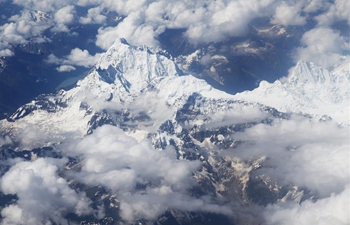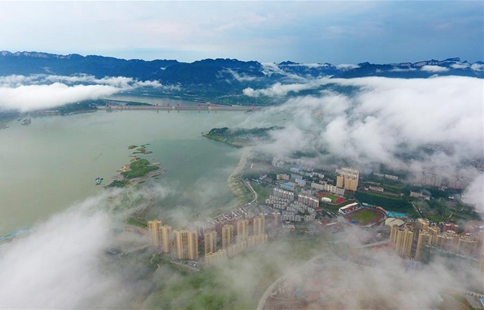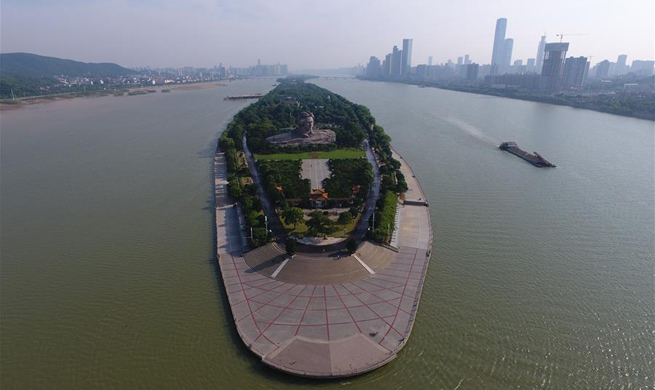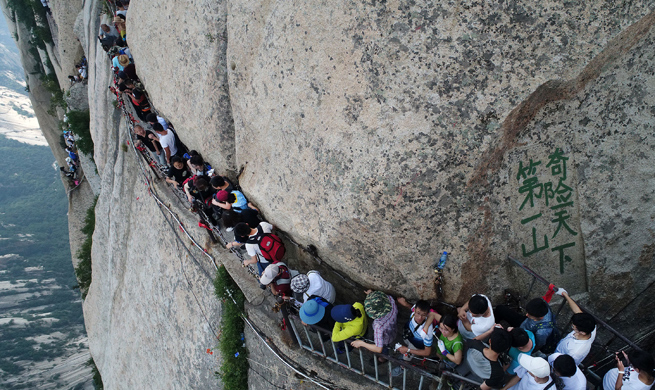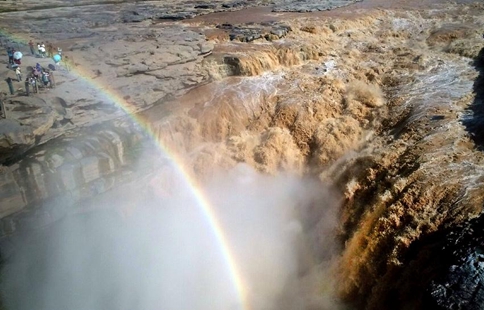NEW YORK, July 15 (Xinhua) -- Facing growing uncertainties and complexities in sea level rising, experts on climate change have urged people to find solutions to adapt to the changes that are already underway or to come in the future.
At an international climate conference here on Friday themed with "Regional Sea Level Changes and Coastal Impacts," the experts discussed causes and impacts of sea level rising, challenges in predicting regional sea level changes, as well as adaptable solutions to make coastal communities more sustainable and resilient in face of the increasingly complex sea level changes and extreme weather events.
Professor James L. Davis from Columbia University said the melting of glaciers and ice sheets in recent years is the major contributor to sea level rise. However, other causes also make current situation even more complicated, which include earth's deformation and gravity changes from glacial melting since last ice age cycle, as well as changes in ocean circulation like density changes from temperature and salinity variations.
"That means sea level change is different in various parts of the ocean, and thus city planners and stakeholders should pay more attention to local sea level rise," he said.
Professor Robin E. Bell, also from Columbia University, said the Antarctic ice is moving faster, getting lower, and losing mass. Besides the complexity of the sea level rising, the science in monitoring ice sheets is inadequate and needs to be improved.
"Underneath the ice sheet is a rich environment, where you can find mountains, lakes, and other places that can funnel in warm water," said Bell.
"But we don't quite know what's going on underneath the ice sheet, what's going to happen when the air warms, and if there is warm water getting close to the ice sheet."
The unpredictable sea level rising is not always a slow process, sometimes it is with catastrophic events including storms, hurricanes, coastal flooding and high tides, which are more powerful and destructive in a short period, Davis added.
Scott M. Stringer, who is the Comptroller of New York City, said that since 2010, the record warm weather in the United States is five times more than record cold weather. So far this year about nine extreme weather events happened in the United States, which is almost twice the normal rate. He believes that how coastal communities can adapt to future conditions should be the key consideration in preparation for natural disasters.
To combat sea level rising, the experts suggested a concept of both mitigation and adaptation, which is a combination of many protection solutions, including barrier island preservation, shoreline stabilization, raising of the infrastructure, insurance and reinsurance, etc.
"Acting on climate change is not the right option, but the only option," said Stringer. "Government should plan ahead, arming ourselves with the tools, and setting aside the funding we need to face the next climate-induced catastrophe."
Jointly held by the World Climate Research Program and the Intergovernmental Oceanographic Commission at Columbia University, the conference was attended by over 300 scientists, policy makers and experts.







